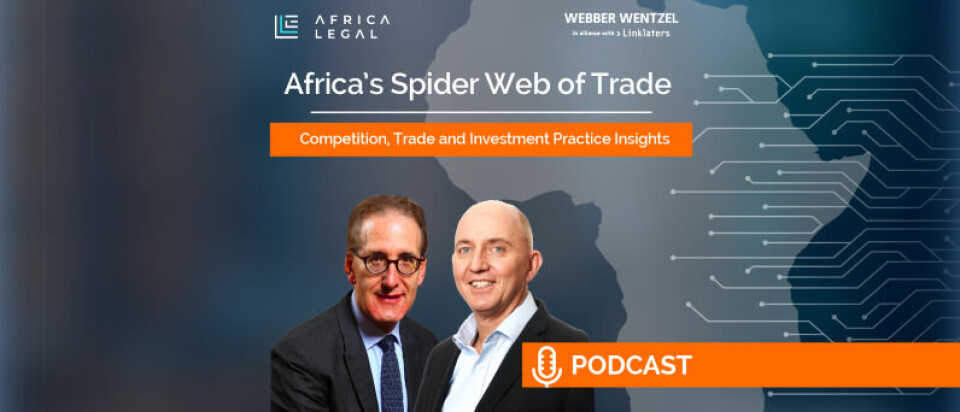The multiplicity of trade agreements and policies in Africa can best be described as a spider’s web, says Daryl Dingley, who heads the Competition,Trade and Investment (CTI) practice at Webber Wentzel.
Dingley noted that one of the shortcomings of having numerous regional and institutional bodies, is the inability of African countries to identify the parties in their trade policies. Webber Wentzel can advise governments on these and how to deal with the overlapping nature of the various agreements, he said.
Other areas in which they can offer their expertise are in inter-regional trade, customs, regimes, procedures, insufficient infrastructure and the free movement of people .
“To achieve the goals of the African Continental Free Trade Agreement (AfCFTA), for example, and to achieve a liberal trade regime, it's very important that we address some of those issues,” said Dingley.
Judge Unterhalter, a South African High Court judge, has served on a number of World Trade Organization (WTO) dispute settlement panels. He pointed out that African countries marginally benefitted from historic trade relationships with their erstwhile colonial counterparts.
Unterhalter believes that if the aims of the AfCFTA are recognised, developed and realised, it will bring great advantages to the continent. He cautioned, however, that this must be coupled with significant institutional investment, as well as political will from all member states.
In the podcast, Unterhalter delves into what he sees as the future-focused role of the WTO and the economic war between China and the US which, he says, is a key variable not just in trade, but in all areas of global life.
The guests discuss the impact of the power rivalry between the two countries, their foreign policies and trade in other nations. Unterhalter comments that in some ways it's at the risk of having to make choices, particularly between the US and China.
“Africa wants good relationships with both, and being forced to choose is not helpful. I think there are many opportunities, though, to foster relationships with both in a way that is ultimately in Africa's interests.”
Dingley says there is definitely a scramble for investment in Africa, with the Chinese ahead with regard to infrastructure development and spend, while the Americans are throwing their support behind renewables and agriculture.
Dingley and Unterhalter also talk about the ways major economic and politically similar African countries could form alliances to take advantage of the benefits of the continent.
The conversation wraps up with the guests looking at how AfCFTA would enable streamlining and the adoption of competition rules across the continent, which has previously seemed arduous and complex.
To listen to the full podcast on Soundcloud or Spotify.
To join Africa Legal's mailing list please click here

